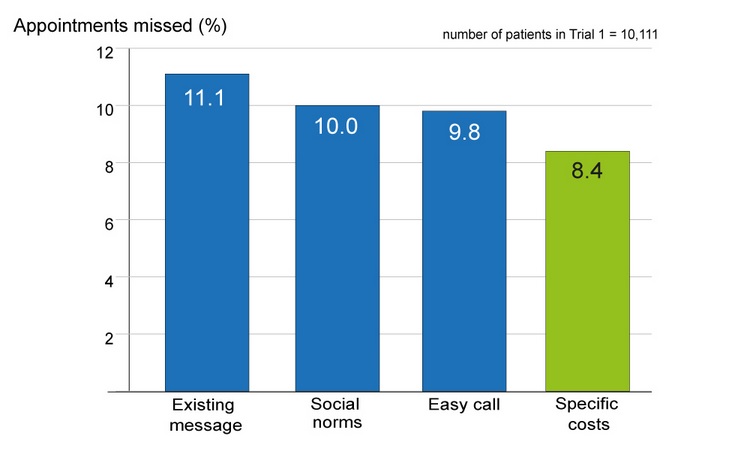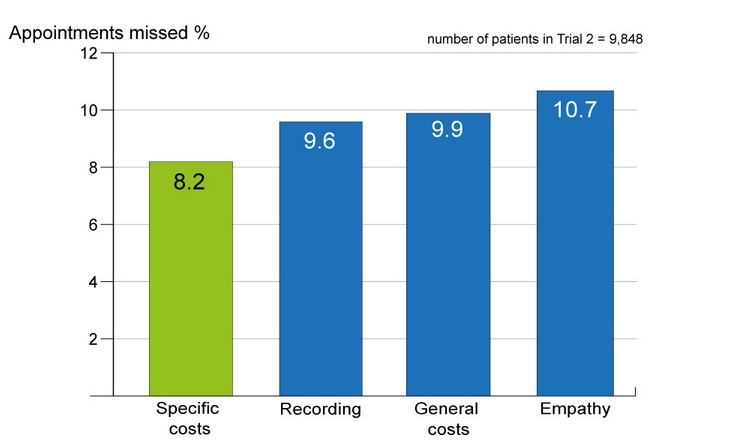Text messages informing hospital patients about the cost of missed appointments have been found to have a positive impact on ‘did not attend’ figures, new research has revealed.
It is estimated that 1 in 10 hospital outpatient appointments are wasted every year, costing the NHS millions of pounds and leading to delays.
According to Quarterly Hospital Activity Data 2015, between 2014-15 around 9%, or 5.6 million, NHS outpatient appointments were missed in England, although the rate at some hospitals and for some clinics is much higher.
In recent years trusts have begun to use text messages and emails to remind patients, but until now there has been no research into the effectiveness of this approach, or the best terminology to use.
This has now changed, with the results of a new research trial run by a team from Imperial College London, the Department of Health (DH) and the Behavioural Insights Team in collaboration with Barts NHS Trust and text message provider, iPlato.
The research was instigated by Imperial College and the DH and was funded by Imperial. Two randomised controlled trials were conducted at Barts from November 2013 to May 2014. Approximately 20,000 patients at five clinics who would have received the standard text message reminder were randomly assigned one of a number of different reminder messages. The reminders were sent five days before their appointment.
The first part of the trial compared the existing standard reminder message in use at Barts with three new messages designed by the research team (see below).
The ‘specific costs’ message was the only message from this first trial to have a statistically-significant effect. It reduced missed appointments from 11.1% to 8.4% - a relative reduction of 23% – a substantial improvement for the NHS.

Effect of messages on missed appointments in Trial 1
The second trial compared three new messages against the ‘specific costs’ message (below).

Text messages used in Trial 2
The ‘specifics costs’ message remained the most effective - a missed appointments rate of 8.2%. It is interesting to note that a more-general message about waste – the ‘general costs’ message – was less effective than the ‘specific costs’ message.

Effect of messages on missed appointments in Trial 2
The paper states: “These results show that the wording of SMS reminders significantly affects the extent to which patients miss, attend or cancel outpatient appointments. Moreover, the results show that presenting the specific tariff cost of the appointment produces a DNA rate that is approximately three percentage points lower than for other messages, a result that we replicate.”
From the trial at Barts, it concludes: “These results have clear policy implications. We calculate that the lower DNA rate produced by the Specific Costs message, compared to the control message, in Trial One would result in 5,800 fewer missed appointments for Barts Health across all outpatient specialities, if sustained over the course of a year.
“The wider implications of this trial are that healthcare providers with SMS technology looking to reduce DNAs should consider adopting the messages above, or testing their own wordings. More generally, there is evidence that they should ensure messages contain specific, salient information in order to maximise their effectiveness.”
Click here to read the paper in full.




